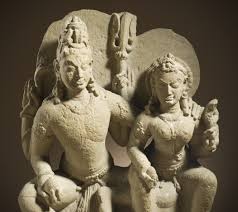 In my previous post here on Feminism and Religion, “Emerging Energy Wisdom” I suggested we should develop new feminist wisdom for young women of the world, which will hopefully allow them to avoid some of the mistakes we have made (some irreparable). The gist of that wisdom would be “conserve your energy!”
In my previous post here on Feminism and Religion, “Emerging Energy Wisdom” I suggested we should develop new feminist wisdom for young women of the world, which will hopefully allow them to avoid some of the mistakes we have made (some irreparable). The gist of that wisdom would be “conserve your energy!”
Some of these mistakes originated in our being unaware of the limitations in a patriarchal society. I for instance thought that since I knew I was intelligent powerful and energetic I could affect any positive change I wanted. I also believed I could help anyone. I disregarded my own needs, including energy needs, as well as being blind to the objective conditions of patriarchy.
Today I would like to give an example, from fiction, of how this energy wisdom might work. In its application, I believe, this wisdom is related both to the Buddhist teaching of self-reliance and to the idea that each person must find their own connection to Goddess and God from modern paganism.
Mahâ Parinibbâna Sutta is an ancient Buddhist text describing the last days in the life of the historical Buddha. In it, there is this quote from the Buddha:
Therefore, Ânanda, be islands unto yourselves. Be your own refuge. Have recourse to none else for refuge. Hold fast to the Dhamma as an island. Hold fast to the Dhamma as a refuge. Resort to no other refuge. Whosoever, Ânanda, either now or after I am gone, shall be islands unto themselves, refuges unto themselves, shall seek no external refuge, it is they, Ânanda, among my disciples who shall reach the very topmost height! But they must be keen to progress.
 I see this quote as a succinct expression of Buddhism’s emphasis on the importance of personal practice and on the fact that it is only through individual practice, through striving to progress on the path, that one can achieve the ultimate goal of Enlightenment. We all know that Buddhism is a religion without a deity. You put your trust in the Buddha and his teaching, but you have to do all the work by yourself.
I see this quote as a succinct expression of Buddhism’s emphasis on the importance of personal practice and on the fact that it is only through individual practice, through striving to progress on the path, that one can achieve the ultimate goal of Enlightenment. We all know that Buddhism is a religion without a deity. You put your trust in the Buddha and his teaching, but you have to do all the work by yourself.
In Mahayana Buddhist, practitioners take a Bodhisattva vow, intending to help every other sentient being to become enlightened before they themselves do. However, this is done more as a moral intention, as a direction to go. It is known that it is only the enlightened ones, or buddhas, who can see and untangle all the karmic tangles, and thus can direct any person on the right track to Enlightenment. Until you are enlightened yourself you cannot help another.
I am going to show what I believe to be the Goddess equivalent of this principle in an example. Recently I watched a Soviet TV drama from the 1980s called “Compulsive Writer”. It is based on the short story by Aleksandre Volodin “It is Shameful to Be Unhappy”.
The daughter of the protagonist is in love with a married man, an artist. Her Father is appalled. The daughter explains that her lover is the most gifted and most vulnerable person she has met, and that’s the reason she is with him. To me, this is a classic case of the Goddess complex that we have as young women. The Goddess is life and she is creativity and she is love. She loves artists and wants to help them. So as young women full of energy we channel this role of the Goddess and throw ourselves into doomed projects. However, because in manifesting love we are in direct link with the Goddess, we feel the best we ever felt and completely in the right.
 Next, in the story by Volodin, the artist leaves his wife, the Daughter marries the artist, but not for long. In half a year she divorces him and leaves the town. What happened there? Again, the classic case: Once the Goddess united with the artist, she could immediately see that he is not worthy. The man has not found his own connection to Goddess or God and so is not a suitable partner for the woman with the Goddess in her. The project of saving an unworthy man quickly becomes not even charity; it comes to involve putting yourself down deliberately, in order to be with a man who has progressed much less on the spiritual path.
Next, in the story by Volodin, the artist leaves his wife, the Daughter marries the artist, but not for long. In half a year she divorces him and leaves the town. What happened there? Again, the classic case: Once the Goddess united with the artist, she could immediately see that he is not worthy. The man has not found his own connection to Goddess or God and so is not a suitable partner for the woman with the Goddess in her. The project of saving an unworthy man quickly becomes not even charity; it comes to involve putting yourself down deliberately, in order to be with a man who has progressed much less on the spiritual path.
Nevertheless, before leaving, the Daughter says to her Father that she was happy during this half a year, because she had love. And now she is unhappy. Which sounds a tiny bit like what Abigail Smith was arguing recently in her The Dangers of Learning Your Lesson post. Love is still love, however unhappy it was. No one disputes that. However, we know from experience that love alone is not enough for two people to be happy together. Both of them need to do the spiritual wok. For themselves. Striving to better themselves – just like the Buddha taught.
With his new wife gone, the artist falls ill and begs the wife of the protagonist, a doctor, to let her Daughter know and to ask her to come back to him. This is another proof that the artist was using his lover, then wife as a source of Goddess energy for his life and very possible for his creativity. With her gone, he does not have anywhere else to draw energy from, and so he becomes ill and helpless.
The question is: should the woman return to him at this point? And the answer is: not until he finds his own connection to the Goddess, or, as other modern pagans would suggest, until he develops a God, the counterpart to the Goddess, in himself, in order to be a worthy partner to the woman with the Goddess. Only then can the union of the two people be equitable and blessed with love and creativity.
The wisdom part of all this story for women is to be aware of whose power and energy we embody when we are young. And the lesson is to respect and treasure this energy. The task is not to spill it on worthless projects, such as reckless behaviour and substance abuse, or on individuals who make no effort or too little effort to develop spiritually. This energy, once wasted, is extremely difficult, if not impossible, to retrieve. The wrong choices we make in our youth can create complications for the rest of our lives to sort, and we might be left with no time or energy to progress on our own spiritual path.
Oxana Poberejnaia was an Officer of the University of Manchester Buddhist Society while studying for a PhD in Government, and has been involved in organising the Manchester Buddhist Convention, now in its 10th year. Oxana is now exploring the Sacred Feminine through marking seasonal festivals, working with her menstrual cycle, frame drumming and shamanic journeying, while keeping the practice of Buddhist meditation. Oxana is an artist and an author. She teaches frame drumming and meditation. Her works can be found on her blog.


What a brilliant piece. I resonated with the feeling of “being with the Goddess” in trying to heal men who are damaged. It is important to recognize that we cannot save those who are making no effort to save themselves, and also it is important in some way to honor the young woman/ourselves who in her unknowing, need, and good heart was channeling real love and real compassion (unfortunately often into a black hole).
LikeLike
Thank you, Carol, very kind of you
LikeLike
But it is only by falling down that we learn how to get up. If that falling down entails an effort to aid another, so be it.
LikeLike
That’s a very generous point of view, MaryAnn. I would just like to reiterate that energy resources are not limitless. Remember I am writing from a Buddhist/Goddess point of view. While other more theistic traditions may claim that nothing is impossible with God’s help, since his resources are boundless, I do not hold a theistic view and believe that in this world with this body we only have limited energy and opportunities. They might be great, but they are not limitless. Buddhism teaches the importance of balancing compassion with wisdom. And I would also like to say again that I personally know people who have fallen never to get up. They either died, became addicted to substances or became mentally ill. They will not be helping anyone now.
LikeLike
Very interesting read. “Do not waste your maiden energy on unsuitable men” is what I resonated with most with. I am a Mother now and it is difficult to connect with my maiden goddess but she is still there! And the crone. We are all three together, maiden, mother and crone. As time is not linear we can access each specific energy when ever we like. I too work with my menstrual cycles and am researching red and white moon cycles at the moment. It was nice to find your blog tonight.
LikeLike
Hello, Louisa! Thank you for your kind comment. Working with you menstrual cycle is great, isn’t it? One thing about patriarchal society that quickly becomes clear is that it is happy to accept only certain aspects of each of the three stages, but not others: Energy of the Maiden, but not Independence, ability to give birth and nourish of the Mother, but not the ability and right to rule, and detachment of the Crone, but not wisdom. And of course in each stage patriarchy denies woman action and fierceness.
LikeLike
What an insightful post! I wish we could teach this to all women and that I had known it when I was younger.
LikeLike
Thank you so much, Linda! I know. I feel the same. I feel that it is general social mores that preclude us from listening to our female elders. My Mother might have tried to teach me something along these lines, but I ignored her, because at that time I was identifying with the male patriarchal world and thought her teaching to be inferior to what I was learning from the male rulers of the world.
LikeLike
I have plenty of energy to fight my enemies, delight in their defeat, and live on for a lesbian feminist nation. I am so done with hetero-patriarchy.
LikeLike
A beautifully written wake up call. Women can get caught up trying their best to practice compassion, but sometimes it’s a fierce compassion that’s required, including a fierce compassion for our own boundaries and a discernment of where our energy is best spent. Brava, Oxana!
LikeLike
Thank you so much, Mary! This means a lot to me.
LikeLike
I was a lucky (or perhaps smart) young woman. I met the man who became my husband when I was 19, the man I’m still with 48 years later. But I’ve seen many a young woman throw away her energy on the wrong person. In the worst case, it was a very smart, talented, fun, young friend who married her (female) partner, because it would be the most growthful relationship she could have, i.e. the most difficult. I told her that I wouldn’t marry for that reason when I figured out what was going on, that I had married because Mark was my best friend, the most supportive man I could imagine, someone I wanted to spend time with, and, of course, that he attracted me physically as well. She got married and six months later the two women parted.
LikeLike
Yes, I know, Nancy. Strong willful women like myself and many of my friends very often challenged ourselves unnecessary. In fact, if you heed the Buddhist teaching, it quickly becomes apparent that the biggest challenge in life is in fact to be happy and content. It might sound self-centered at first, but if anyone spends just one day trying to be happy and content, they will see how much work it takes, how difficult it is and how much good they can contribute to the world just by being happy.
LikeLike
Oxana —
Once again I’ve been lucky. Just two weeks ago I attended a “meditation retreat” unlike any I had ever conceived of. We learned the internal skills necessary for meditation (they are many and varied, depending on each individual’s personal make-up). It turns out these are the skills we need to live life joyfully. I’ve been VERY HAPPY ever since, and have seen this happiness contribute to the joy of those around me in all sorts of ways. And I look forward to my meditation practice (which has changed dramatically) as the most interesting part of my day. What a change! Until now meditation was a necessary activity to help me overcome life’s challenges, but it certainly wasn’t delightful and full of wonder like it is now.
LikeLike
Brilliant, Nancy! And of course, in Buddhism we would say that you must have a really good karma to be that lucky! :-)
LikeLike